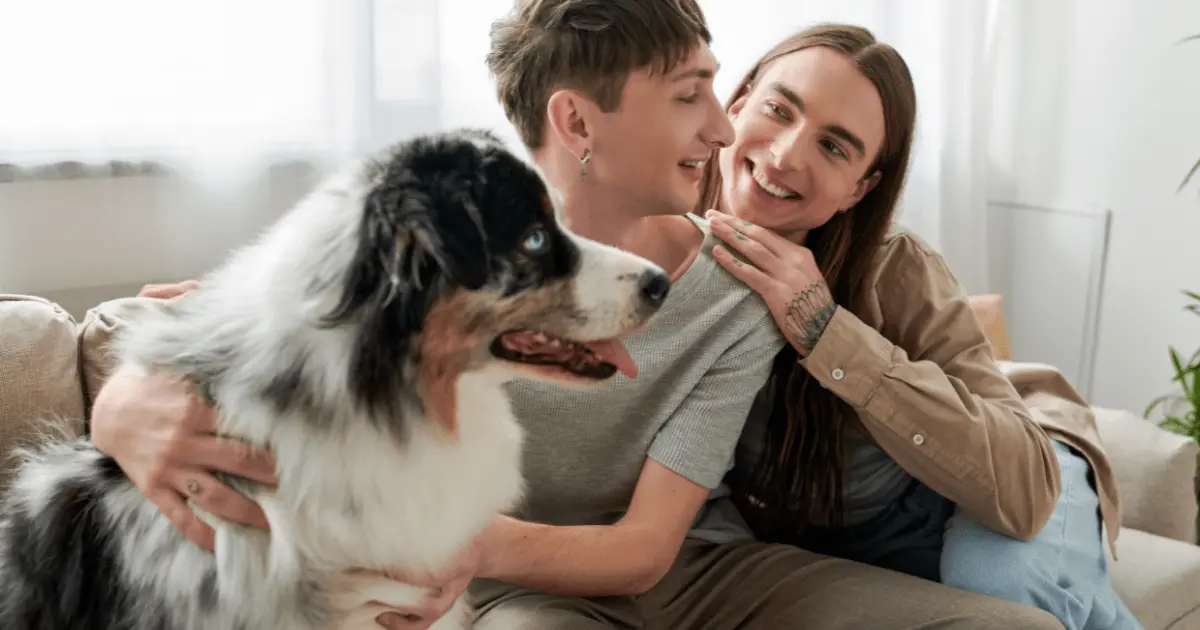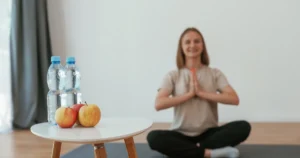Building loyalty and trust with your dog takes time, patience, and consistent effort. As a pet owner, your goal is to create a bond that will last for years, bringing you both happiness, security, and love. In this guide, we’ll explore 30 life-changing ways to strengthen your relationship with your dog and create a loyal companion who feels safe and respected in your home.
Table of Contents
Toggle1. Check Your Dog’s Breed
Different breeds have unique temperaments and characteristics. Some dogs are naturally more loyal and eager to please, like Golden Retrievers, while others may take more time to bond. Researching your dog’s breed will help you understand their specific needs and behaviors.
2. Be Patient With Your Dog
Patience is crucial when building loyalty. If your dog is still adjusting to you, be patient. Dogs need time to trust and adapt to their new owners.
3. Create an Emotional Bond With Your Dog
Loyalty begins with a deep emotional connection. Spend quality time together—petting, playing, and sharing experiences that help you grow closer. Affectionate behavior strengthens this bond.
4. Don’t Punish the Dog Unnecessarily
Avoid punishments for minor mistakes. Instead, focus on positive reinforcement. Dogs thrive in environments where they feel safe and understood, not feared.
5. Be the Leader
As an owner, it’s essential to establish yourself as the leader. Dogs look to their owners for guidance and security. Being firm, consistent, and calm helps your dog feel safe.
6. Give Your Dog Their Own Space
Allow your dog to have a safe, quiet spot to relax, especially in a busy household. This will help them feel more secure and less stressed.
7. Be Loyal
Loyalty goes both ways. Show your dog love and care, and they will return it tenfold. Consistently providing for your dog’s needs fosters trust.
8. Slow Your Roll
Don’t rush the process of building loyalty. It takes time to teach your dog new tricks, commands, and behavior expectations. Patience is key.
9. Be Your Dog’s Protector
Your dog looks to you for safety. Be their protector and advocate, especially during moments of fear or distress.
10. Comfort Your Dog When She’s Afraid
Whether it’s loud noises, new places, or unfamiliar situations, comfort your dog during moments of fear. This helps build trust and shows that you are there to keep them safe.
11. Discover What Your Dog Loves, and Do More of It
Each dog has their own unique preferences. Whether it’s a specific toy, type of play, or walk, engaging in activities your dog loves strengthens the emotional bond between you.
12. Listen to What Your Dog Is Saying
Dogs communicate with body language and vocalizations. Pay attention to their cues to understand their emotional state, ensuring you provide the right kind of attention.
13. Let Your Dog Sleep in Your Bedroom
Many dogs feel more secure when they sleep near their owners. Allowing your dog to sleep in your room can deepen your bond and provide a sense of comfort.
14. Use Positive Training Methods
Positive reinforcement is one of the best ways to encourage good behavior. Reward your dog with treats and praise when they follow commands or display loyal behavior.
15. Have Fun, and Be Fun
Dogs love to play, and having fun together creates positive memories. Play games like fetch, Frisbee, or chase to keep your dog engaged.
16. Be Present
Spend quality time with your dog. Whether it’s taking walks, playing together, or simply sitting in the same room, being present strengthens the bond.
17. Take Walks Together
Regular walks allow you to engage with your dog, providing mental and physical stimulation. This time together also enhances your relationship.
18. Work Together
Training is an opportunity to work as a team. Teach your dog new tricks, commands, and even household routines to foster cooperation.
19. Feed Your Dog
Proper nutrition is vital for your dog’s health and happiness. Feed them a balanced diet that supports their energy levels and well-being.
20. Have Grand Adventures
Explore the world with your dog. Whether it’s hiking, a beach trip, or a visit to the park, adventures create fun and lasting memories.
21. Spend Quality Time Together
Whether it’s cuddling, playing, or simply being together, spend quality time bonding with your dog daily.
22. Communicate Clearly
Dogs thrive on clear communication. Use consistent commands and body language that your dog can understand.
23. Add a Little Love into Their Food
Show your dog you care by preparing their meals with love and attention. Feeding is an important part of the relationship.
24. Train Your Dog
Training teaches your dog to follow commands, behave appropriately, and develop good habits. Consistency is key.
25. Be Playful
Let your dog be a puppy again! Playfulness keeps them happy and strengthens your bond.
26. Stay Calm
Dogs are sensitive to emotions. Stay calm and relaxed when handling situations to create a secure environment.
27. Understand Dog Behavior
Knowing your dog’s body language and behavioral signs will help you communicate and respond to their needs.
28. Pay Attention to Your Dog’s Likes and Dislikes
Each dog has personal preferences. Whether it’s a favorite toy, food, or spot in the house, respecting your dog’s likes and dislikes fosters loyalty.
29. Pet Your Dog
Physical affection like petting can strengthen the emotional bond with your dog. Dogs love being touched and cared for.
30. Observe Your Dog’s Behavior and Preferences
Take note of your dog’s habits, preferences, and behaviors. This will help you meet their needs and understand their emotional state.
FAQs
How do I make my dog loyal to me?
To build loyalty, spend quality time with your dog, use positive reinforcement, and create an emotional bond.
How do I say sorry to my dog?
Dogs don’t understand the concept of “sorry,” but you can show your remorse by being calm, offering treats, and spending extra time together.
What makes a dog loyal to their owners?
Dogs become loyal through consistent care, affection, and clear communication. Loyalty is also strengthened by a strong emotional bond.
How to create a loyal dog?
To create a loyal dog, build trust, be patient, and provide consistent training and affection.
Are dogs 100% loyal?
While dogs are known for their loyalty, they are not perfect. Loyalty depends on training, trust, and the emotional bond you share.
How do I earn a dog’s trust?
Earn your dog’s trust by being consistent, kind, and calm. Building a routine and spending quality time together helps too.
How to repair a relationship with a dog?
To repair a relationship, be patient, avoid harsh punishments, and work on rebuilding trust through positive interactions.
How long does it take a dog to trust you?
It varies by dog, but generally, it can take weeks to months to build trust with a new dog.
What do dogs trust take?
Dogs trust based on consistent care, positive experiences, and emotional security provided by their owners.
Conclusion
Building a loyal and trusting bond with your dog is a journey that requires time, patience, and commitment. By following these 30 life-changing methods, you can create an unbreakable connection with your dog that is built on mutual respect, love, and understanding. Remember, loyalty isn’t something that happens overnight – it grows and strengthens through consistency, positive reinforcement, and shared experiences.
Your dog will not only become a loyal companion but also a true family member who brings joy, protection, and unconditional love into your life. Whether you’re starting with a puppy or working to strengthen your bond with an adult dog, these strategies will guide you to a happier, more fulfilling relationship.
Start implementing these steps today and watch your dog transform into a loyal and loving companion who will stand by your side for life.
Authentic Sources
The information provided in this article is based on years of research and expert advice on dog behavior, training, and care. Below are some trusted sources that can help you further understand how to make your dog loyal and build a strong bond:
-
American Kennel Club (AKC) – The AKC is a renowned authority on dog breeds, behavior, and training. They offer valuable insights on how to care for and bond with your dog. AKC Website
-
The Humane Society of the United States – An expert resource for pet care, dog adoption, and building lasting relationships with your pet. Humane Society Website
-
ASPCA (American Society for the Prevention of Cruelty to Animals) – A leading organization providing advice on animal care, including how to create a safe and loving environment for your dog. ASPCA Website
-
Petfinder – Offers guidance on dog adoption, behavior, and bonding with your new pet. Petfinder Website
- Dog Training Academy – An online platform dedicated to offering effective and science-backed dog training methods to strengthen the bond with your pet. Dog Training Academy
-
University of Pennsylvania School of Veterinary Medicine – Offers expert advice and research on canine health and behavior. University of Pennsylvania Veterinary Website
These resources are reliable and provide in-depth knowledge on dog care, behavior, and training. Be sure to check them out for additional tips and information on building a loyal, loving relationship with your dog.
Related Articles
If you’re interested in learning more about building a stronger bond with your dog and improving your pet care knowledge, check out these helpful articles:
-
How to Get Your Dog to Love You – Learn essential tips for gaining your dog’s affection and trust.
-
How to Get Your Dog to Come When Called – Essential training tips for improving your dog’s recall and obedience.
-
How to Teach a Dog How to Speak – Teach your dog to communicate and strengthen your relationship.
-
6 Easy Tips to Care for Your Dog’s Coat – Keep your dog healthy and happy with these grooming tips.
-
6 Tips to Prevent Health Problems in Dogs – Learn how to keep your dog healthy and prevent common health issues.
-
How to Socialize Your Dog with Humans – Tips for making your dog more comfortable with people and other pets.
-
Why Dogs Need Regular Grooming – Understand the importance of grooming for your dog’s overall well-being.
-
How to Exercise Your Dog in an Apartment – Learn creative ways to keep your dog active and happy even in small spaces.
These articles will help you deepen your understanding of dog care and strengthen your relationship with your furry friend.




